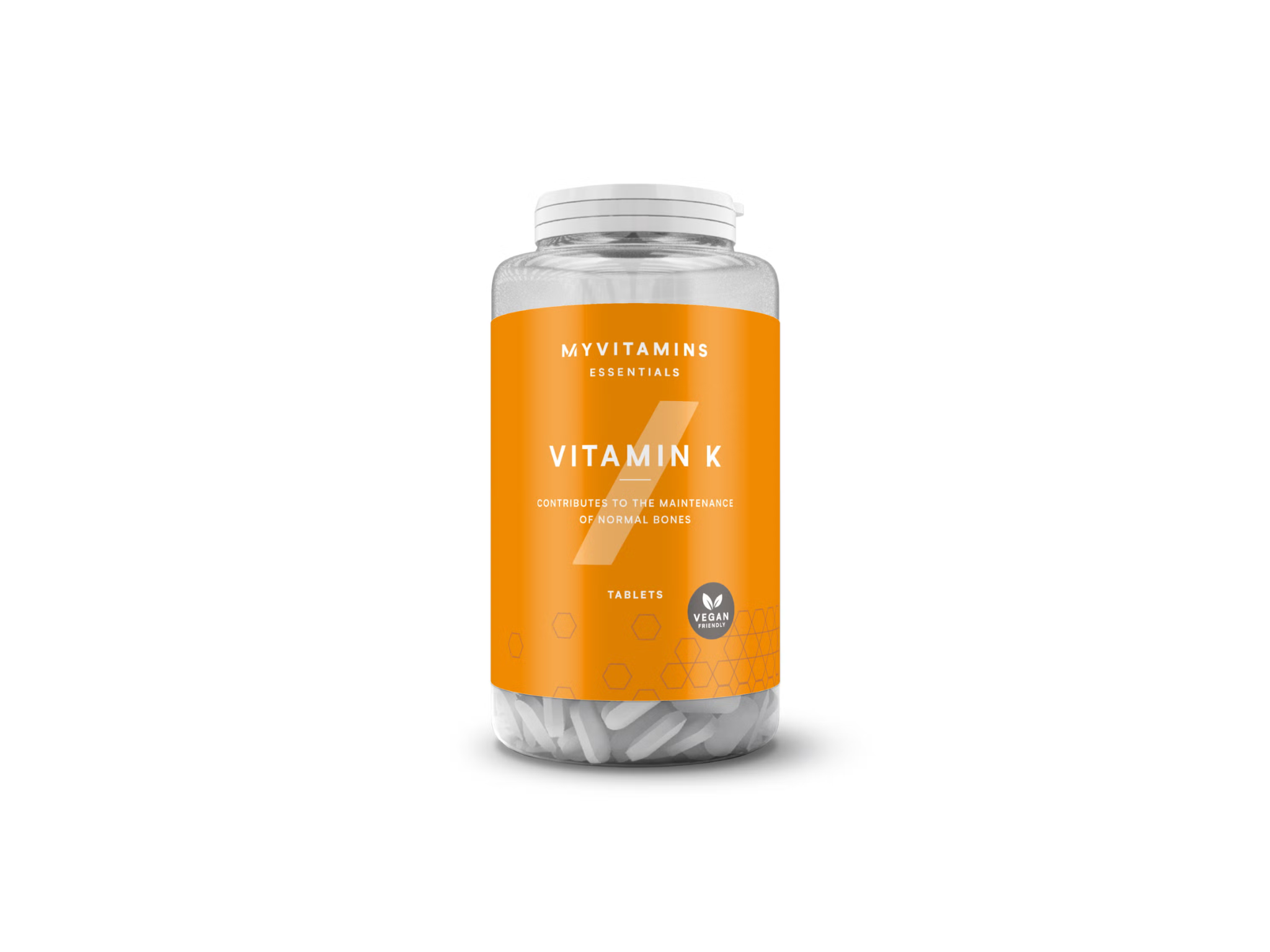
Vitamin K is needed for wound healing and strong bones, while our bodies produce some, we get most of it from our diets. As we age, the strong bones and resilient skin that vitamin K helps with can become less robust, so it’s important to get the vital nutrients we need to support our health into midlife and beyond.
There is increasing evidence that a healthy daily dose of vitamin K improves bone health and reduces the risk of bone fractures, particularly for those who are postmenopausal and at risk for osteoporosis.
Studies of men and women athletes have also found that vitamin K helps maintain bone health so many people choose to supplement it to help with lifting heavy in the gym.
During menopause, hormone levels drop, which can cause the skin to become drier, more sensitive and prone to bruising. Menopause can also result in weaker bones and as we age, the risk of breaks, fractures and osteoporosis increases, which is why strength training in midlife comes so highly recommended by experts. It’s also why keeping an eye on your diet, and supplementing if you need to, can be a good idea.
What is vitamin K?
There are two forms of vitamin K – vitamin K1 and vitamin K2. Vitamin K1 is also known as phylloquinone, and it’s found in green leafy vegetables and some plant oils. Vitamin K2, also known as menaquinone, is produced by bacteria in the gut and it can also be found in fermented foods, dairy and animal products.
Vitamin K deficiency is actually very rare and you can get your recommended amount of daily vitamin K – 90 mcg for women and 120 mcg for men – by eating a variety of foods, such as green leafy vegetables, meat, cheese, eggs, cashew butter, pine nuts and fruits, like blueberries and figs. Vitamin K-rich foods also include some plant-based oils that are used for cooking such as avocado oil and olive oil.
People with certain gut conditions, such as ulcerative colitis and short bowel syndrome might find that despite eating a diet rich in these foods, the ability to effectively absorb vitamin K is impacted. This can also be the case if you suffer from cystic fibrosis or coeliac disease. In these cases, it can be especially important to take supplements when you need them.
If you find that you’re not eating enough foods that contain vitamin K and you’re concerned about the health of your bones, you might want to consider taking a vitamin K supplement.
The vitamin K supplements to take
Myvitamins vitamin K: Was £5.99, now £3.32, Myprotein.com

Delivering a balanced dose of vitamin K2, these supplements from Myvitamins are an affordable way to supplement your nutrient intake. Available in a stash of either 30 or 90 easy-to-swallow tablets, these K supplements make it easy to support your bone health every day. So, whether you’re approaching menopause, looking for ways to strengthen your body or want to give your health a boost in midlife, look no further than these affordable supplements.
Read more: Should you take cod liver oil? Health benefits explained







